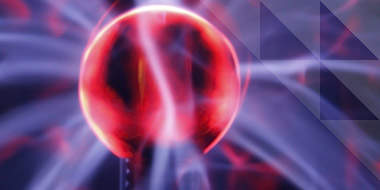-
Study
-
Quick Links
- Course Search
- Fees and Funding
- UCAS Clearing & Confirmation 2025
- Unlock Your Potential
- Higher and Degree Apprenticeships
- Continuing Professional Development
- Still time to apply
-
Undergraduate
- UCAS Clearing & Confirmation 2025
- Application Guides
- UCAS Exhibitions
- Foundation Years
- School & College Outreach
- Information for Parents
-
Postgraduate
- Application Guide
- Postgraduate Research Degrees
- Flexible Learning
- Change Direction
- Register your Interest
-
-
International
International
Northumbria’s global footprint touches every continent across the world, through our global partnerships across 17 institutions in 10 countries, to our 277,000 strong alumni community and 150 recruitment partners – we prepare our students for the challenges of tomorrow. Discover more about how to join Northumbria’s global family or our partnerships.
View our Global Footprint-
Quick Links
- Course Search
- Undergraduate Study
- Postgraduate Study
- Information for Parents
- London Campus
- Northumbria Pathway
- Cost of Living
- Sign up for Information
-
International Students
- Information for Students
- International Events
- Application Guide
- Entry Requirements and Education Country Agents
- Global Offices
- English Requirements
- English Language Centre
- International student support
- Cost of Living
-
International Fees and Funding
- International Undergraduate Fees
- International Undergraduate Funding
- International Masters Fees
- International Masters Funding
- International Postgraduate Research Fees
- International Postgraduate Research Funding
-
International Partners
- Agent and Representatives Network
- Global Partnerships
- Global Community
-
International Mobility
- Information for Northumbria Students
- Information for Incoming Exchange Students
-
-
Business
Business
The world is changing faster than ever before. The future is there to be won by organisations who find ways to turn today's possibilities into tomorrows competitive edge. In a connected world, collaboration can be the key to success.
More on our Business Services -
Research
Research
Northumbria is a research-rich, business-focused, professional university with a global reputation for academic quality. We conduct ground-breaking research that is responsive to the science & technology, health & well being, economic and social and arts & cultural needs for the communities
Discover more about our Research-
Quick Links
- Research Peaks of Excellence
- Academic Departments
- Research Staff
- Postgraduate Research Studentships
- Research Events
-
Research at Northumbria
- Interdisciplinary Research Themes
- Research Impact
- REF
- Partners and Collaborators
-
Support for Researchers
- Research and Innovation Services Staff
- Researcher Development and Training
- Research Ethics and Integrity
- University Library - Open Access
- Vice Chancellors Fellows
-
Research Degrees
- Postgraduate Research Overview
- Doctoral Training Partnerships and Centres
- Academic Departments
-
Research Culture
- Research Culture
- Research Culture Action Plan
- Concordats and Commitments
-
-
About Us
-
About Northumbria
- Our Strategy
- Our Staff
- Place and Partnerships
- Leadership & Governance
- Academic Departments
- University Services
- History of Northumbria
- Contact us
- Online Shop
-
-
Alumni
Alumni
Northumbria University is renowned for the calibre of its business-ready graduates. Our alumni network has over 246,000 graduates based in 178 countries worldwide in a range of sectors, our alumni are making a real impact on the world.
Our Alumni - Work For Us
From statistics to complex and nonlinear phenomena, astrophysics to smart materials, lasers to CubeSats, and communications to renewable energy, the pioneering research in the Department of Mathematics, Physics and Electrical Engineering focuses on a wide range of issues.
The Department has core groups in Astrophysics (Solar and Space Physics), Mathematics (Mathematics of Complex and Nonlinear Phenomena), Statistics (Applied Statistics), Renewable Energy (Renewable Energy Technologies and Materials), Electrical Engineering (Electrical Power and Control Systems), Communications (Optical Communications Research Group) and Materials Physics (Smart Materials & Surfaces Laboratory).
Prospective PhD students: Opportunities to carry out postgraduate research towards an MPhil/PhD or MSc by research exist in all the areas identified above. Further information may be obtained from The Graduate School.
Visiting scholars: We welcome visiting academics - please contact Professor James McLaughlin (for Mathematics or Astrophysics queries) or Professor Guillaume Zoppi (for Physics
or Electrical Engineering)
To access research outputs in this area and others, please visit Northumbria Research Link.
Click each research area below to find out more about our work:
Applied Statistics
With an increasing demand for the provision and explanation of meaningful statistics to navigate through the data-driven modern world, our research focuses on the development and application of statistical models to real-life problems in the fields of health, medicine and social science.
Discover moreQuantum and Molecular Photonics
Light-matter interaction is central to fundamental phenomena and technologies, and is a rapidly increasing field of significant scientific importance. In the Quantum and Molecular Photonics (QMP) research lab, we develop sophisticated experimental tools and methods aided by advanced computational models to address challenging problems at the interface of quantum optics, materials science and photonics technology.
Discover moreMathematics of Complex and Nonlinear Phenomena (MCNP)
Mathematical theories underpinning different classes of phenomena possess a universal character, with the same mathematical equations appearing to govern phenomena of different nature. The Mathematics of Complex and Nonlinear Phenomena can therefore be seen as the seed for cross-fertilisation between different research areas and disciplines.
Discover moreNorthumbria Space Technology Laboratory
Designing, building and testing novel technology for science and engineering in space.
Discover morePhotovoltaics
Northumbria University Photovoltaics (NUPV) is a research group focused on developing new materials and devices for efficient, sustainable conversion of energy from sunlight. Our work spans a broad range of materials from polycrystalline thin films potentially suitable for TW electricity generation as well as the manufacture of novel devices. Key drivers for our work are increasing efficiency, cost reduction, sustainability and exploiting performance benefits afforded by semiconductor nanostructures. Our approach is highly collaborative and we work across a broad spectrum of academic and industrial collaborators.
Discover moreSolar and Space Physics
The Solar and Space Physics group researches the fundamental plasma physics of the solar system, including our Sun, the solar wind, and the plasma environments of Earth, other planets and comets. We use a wide variety of methods including theory, numerical modelling, observations, data intensive science, and space-related hardware.
Discover moreElectrical Power and Control Systems
The Electrical Power and Control Systems group is an internationally recognised multidisciplinary group, undertaking cutting edge research in renewable energy, power electronics, electric vehicles, battery charging, electric machine and drive, power system management and optimisation, advanced control theory and methods, autonomous driving, robotic systems, and artificial intelligence for engineering applications.
Discover moreOptical Communications Research Group (OCRG)
The Optical Communications Research Group (OCRG) specialises in visible light communications, non-linear control systems and optical sensor research.
Discover moreRenewable Energy Technologies and Materials
With over half of all energy consumption and carbon emissions occurring within building envelopes, our research interests are focused on the development and improvements of the means for providing low carbon and renewable energy for electricity, heating and air conditioning.
Discover moreSmart Materials & Surfaces Laboratory (SMSL)
Smart Materials and Surfaces Laboratory group design and research into novel functional/structural materials and fabrication strategies, often at micro/nano scales, to investigate into liquid-solid interactions and development of smart devices employing smart materials and surfaces. The group conducts fundamental and applied sciences for various applications in energy materials, sensors, healthcare wearables, acoustofluidics.
Discover moreFaculty Education Research Group
This cross-disciplinary group supports educational and pedagogic research, ranging from small projects with an immediate impact on the student experience, through to funded collaborative projects with external partners generating high impact outputs.
Discover moreMathematics, Physics and Electrical Engineering
- Study Mathematics, Physics and Electrical Engineering
-
Research
- Applied Statistics
- Quantum and Molecular Photonics
- Mathematics of Complex and Nonlinear Phenomena (MCNP)
- Northumbria Space Technology Laboratory
- Photovoltaics
- Solar and Space Physics
- Electrical Power and Control Systems
- Optical Communications Research Group (OCRG)
- Renewable Energy Technologies and Materials
- Smart Materials & Surfaces Laboratory (SMSL)
- Faculty Education Research Group
- Collaborate with our Mathematics, Physics and Electrical Engineering Department
- Specialist Laboratories and Facilities
- Our Courses
- Our Staff
- News & Events
- Contact Us
- NUSTEM
Get an insight into life at Northumbria with videos and 360 panoramas of the Department of Mathematics, Physics and Electrical Engineering






